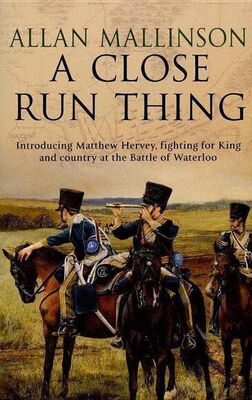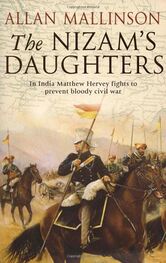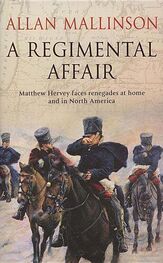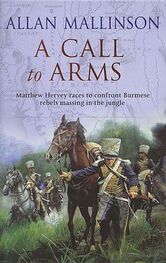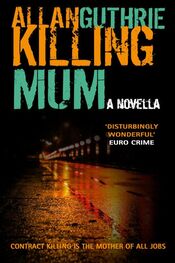He had thought carefully during the weeks since Waterloo about what he should say. With Margaret Edmonds there was the consolation of knowing that, as a loyal follower of the drum, she would understand. Of wives of enlisted men … he simply had no knowledge. Those few who had been in Spain had, like the gypsies and squatters on Warminster Common, been inhabitants of another world, and the regiment had been in Ireland scarcely long enough for the picked men to bring wives into quarters there. Yet there was something about his expectations in the case of Strange’s wife that he could not fathom, though it had exercised him to no little degree. For in the pouch which Strange had handed him, just before turning to face the lancers, there was a letter, and though he had not read it he saw that the handwriting was very fine. There was, too, a miniature, but water had at some stage permeated the oilskin and the likeness was obscure.
He knocked at the door. It was opened by a woman of thirty years (perhaps fewer) in a black crêpe dress, her long black hair tied up with a black ribbon and jet slides. All his preparation was suddenly to no avail. ‘I … that is, would you be Mrs Strange?’ he stammered.
‘Yes,’ she replied, with the rising note which turned the simple affirmation into a question.
‘Mrs Strange,’ he began, trying hard to recall the sequence of information he had practised, ‘I am Lieutenant Hervey of the Sixth Light Dragoons, your husband’s regiment.’
He paused. She looked at him coolly. Would any officer bring ought but bad news? ‘He is dead?’ she asked simply.
Standing in the open door of a cottage on a busy quayside was not how Hervey had imagined this would be. ‘I am very sorry but it is so, Mrs Strange. May I come in?’
She listened in silence as he recounted the events of 18 June. He had resolved beforehand that he would attempt to explain the significance of what her late husband had done, notwithstanding his oath of silence to Wellington, for surely a widow deserved no less. And, further, if she did not grasp the significance of their mission that day, then she could not be expected to understand why he had abandoned her husband. And without understanding how might she be expected to absolve him?
‘Would you like some tea, Mr Hervey?’ she asked at length.
He was pleased to accept, for it seemed that such a gesture might indeed betoken some understanding. It offered him, too, the opportunity to consult the notes he had made previously, yet without which he had so far had to conduct this most difficult of counsels. Her calmness, her dignity, had all but dumbfounded him. He had heard of soldiers’ widows seizing knives and having to be restrained from doing themselves injury. But Mrs Strange had received the news as well — better even — than Margaret Edmonds. And she had called him Mr, not Lieutenant. Here, indeed, was a sign of some… cultivation, some knowledge of affairs. She spoke, too, without Strange’s Suffolk accent. She spoke without any accent. An educated, rather than a refined, voice but alien, surely, to the fishermen’s wharf? Strange had been a fine-looking man, of that there was no doubt. What might he have been — forty? forty-five? But she was so much younger, and in different society Hervey might even have called her beautiful. She had cheekbones as high as the most fashionable of the ladies he had seen in Paris — as high as Henrietta Lindsay’s. Large brown eyes, set perfectly apart, had the look of warmth and intelligence. Her hair, though he thought it certain never to have had the attention of a lady’s maid, shone with hale condition.
He found his place in his notes. ‘There will be a little money, Mrs Strange — not a lot, I fear. It is customary when a soldier dies for his companions to auction his personal effects, and they by tradition bid generously. Many of his possessions are still in Ireland, of course, but those he took with him into the field have raised a little over forty pounds.’
‘That is a worthy sum,’ she conceded.
‘There is also the prize-money for Waterloo.’
She looked puzzled.
‘After a battle the Army’s agents assess the value of the enemy’s equipment which has been captured,’ he explained, ‘and this is divided pro rata, that is to say—’
‘I understand pro rata.’ She said it kindly, though it did not prevent his feeling awkward.
‘This amounts to £19 4s 4d,’ he hastened, looking down at his notebook. ‘There is regimental prize-money of £37 3s 8d, and arrears of pay amounting to £42 2s 3d. With various other payments, your late husband’s estate amounts to £189 7s 8d. There is a full account here, Mrs Strange, and, if you feel able to sign this certificate, I have a banker’s draft which will enable you to withdraw the money at any time.’ He did not, however, explain that the ‘various other payments’ were his own share of the Waterloo prize-money.
‘Mr Hervey,’ she began, ‘I am most touched that you yourself should have troubled to make this journey. I sense that you feel responsible to some degree for my husband’s death, and that this might in some measure account for your coming to Southwold. I know nothing of battles, of course, but I do understand that judgements must be made in an instant and that afterwards there is infinite time in which to reappraise them. Is there any purpose in such reflection, though? I am greatly touched, too, that my late husband’s fellow men should have been so generous in raising such an amount, and I should like very much to write and express that gratitude. Would you be able to take such a letter?’
‘Yes, of course I would, ma’am.’ Ma’am seemed as appropriate as if she had been—
‘Oh,’ she then added distractedly, ‘but I have no writing paper.’
‘There is writing paper at the Swan hotel, where I am staying, Mrs Strange. You would be most welcome to dine there and to write your letter before, or subsequently, in peaceful surroundings.’
She seemed relieved. It was curious, he thought, how things of little consequence assumed such importance at these times (Margaret Edmonds had been likewise distressed at having sent away her cook for the day).
‘I shall dine at three, then, for I intend walking by the sea a while, with your leave, ma’am.’
He walked by the sea for three hours. And he swam, too. It had been close on eight years since he had swum in the sea, and on the last occasion — at Corunna — he had done so for his life. The peace of the day (for the beach was empty but for seabirds), and Mrs Strange’s absolution, now contrived in him such contentment that he could not otherwise remember, and he lay in the warm sun and thought of Henrietta (and a homecoming that few could hope to enjoy) until it was time to return to the Swan.
At five past three the chaise he had sent for her drew up to the inn, and Mrs Strange stepped down. Hervey met her at the door, and they went straight to the Swan’s dining room, a place of some elegance, if a little old-fashioned by the standards he had lately seen in Paris. Mrs Strange made some admiring remark of the furnishings: though she had lived in Southwold for fifteen years, this was her first essay to the hotel. This intrigued him, for it seemed likely that a woman of her refinement might at least have taken tea there even if money for anything more substantial had been wanting. ‘It is only that temperance denied us access, Mr Hervey,’ she revealed when he pressed her.
She studied the bill of fare intently, and, with her eyes so occupied, Hervey found himself admiring her form. She wore a dress of cotton velvet (green, not mourning), even though the day was warm. Its waist was lower than was the fashion — lower, indeed, than had been the fashion for some years — yet it was unquestionably a dress made by a skilled seamstress. Its neck was high, and she wore a necklace of jet. She was fuller-bosomed, fuller-mouthed than Henrietta, and she put him in mind of a portrait on the grand staircase at Longleat House, a painting he had many a time gazed at as a boy — Reynolds’s subject a picture of inaccessible allure.
Читать дальше